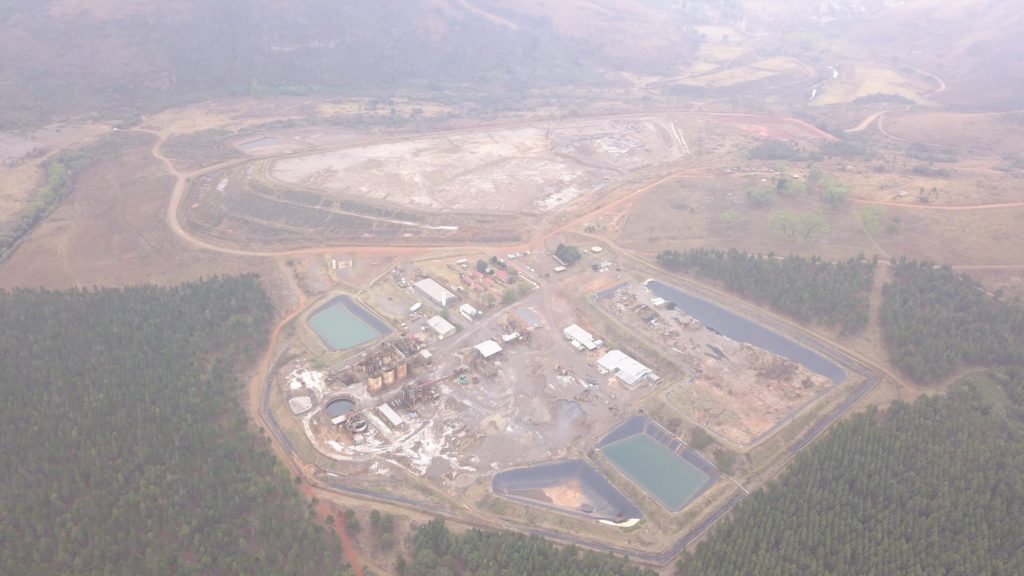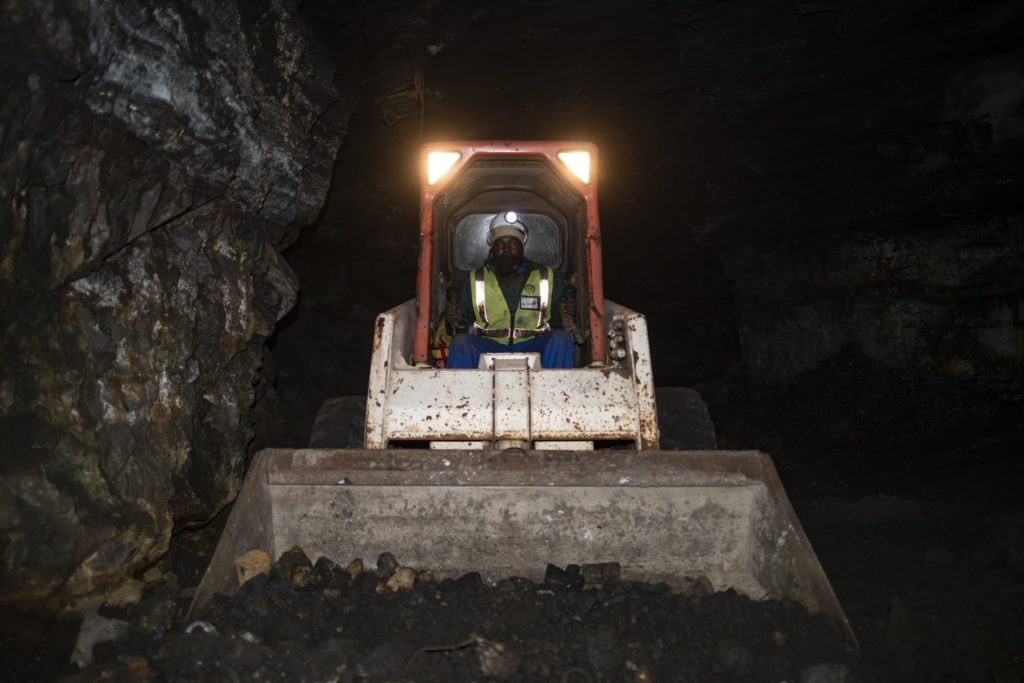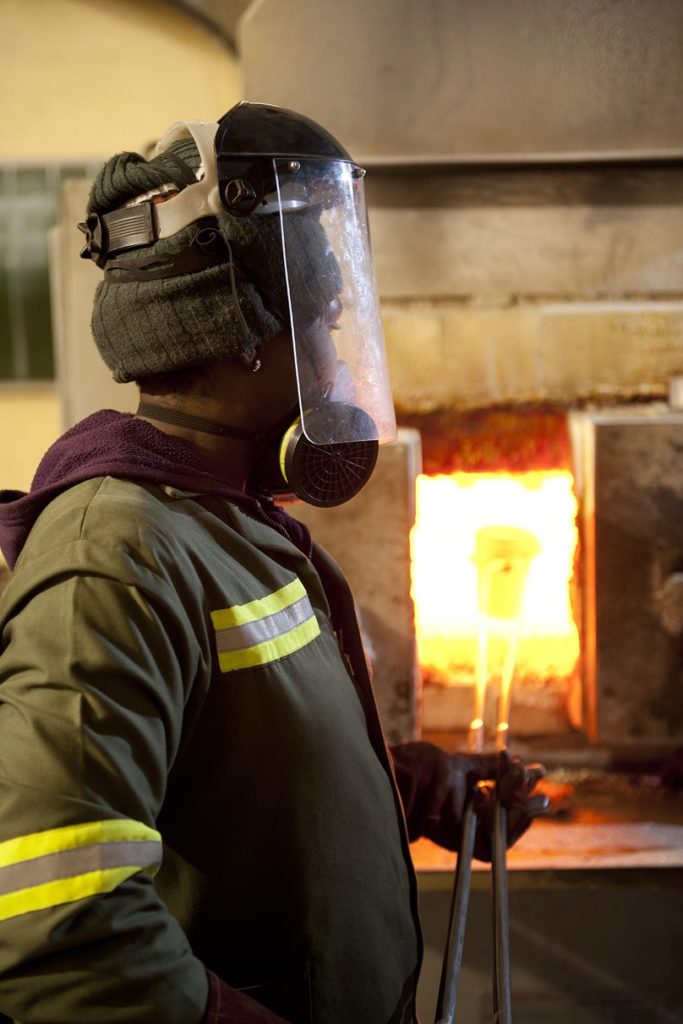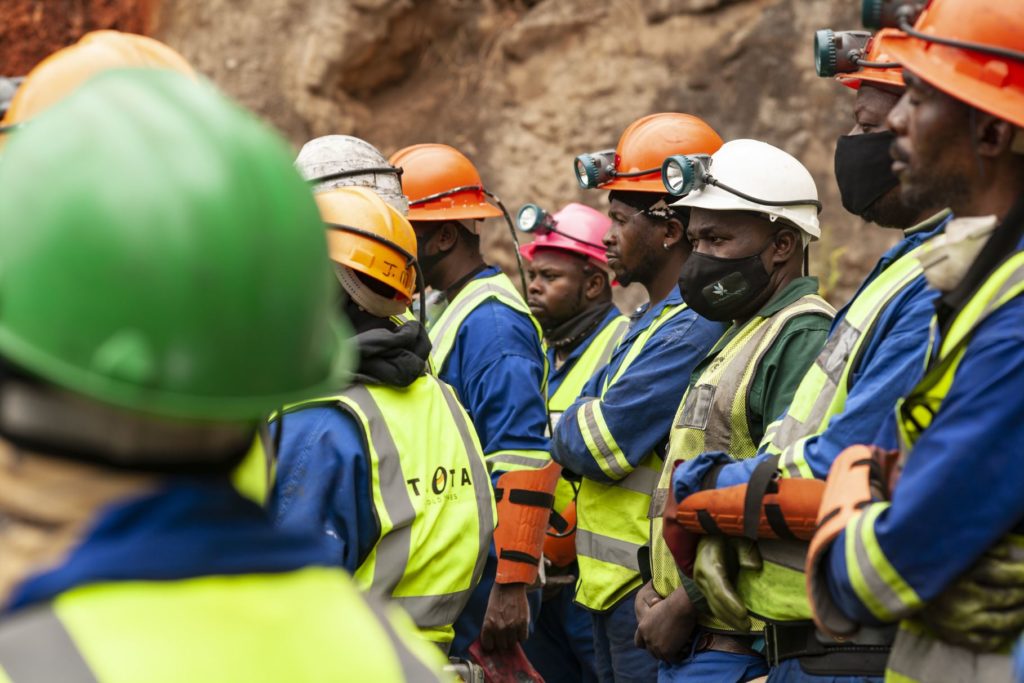You might be interested in
Mining
Resources Top 4: Rare earths hits, graphite deals move the needle as market shakes for battery metals
Mining
Resources Top 4: Lithium darling Solis stems the bleeding, Sprott-backed gold stock eyes first $$
Mining
Mining
Archaeological discoveries suggest gold has been a feature of life and culture in South Africa for over a Millennium.
But the modern history of gold is intrinsically linked with the discovery of the Witwatersrand Basin in 1886.
Once an inland lake, silt and alluvial gold settled for millions of years to form the basin which eventually produced more than 247Moz of gold, four times Kalgoorlie’s Golden Mile.
But it was not the original home of the South African gold rush.
Years earlier, around 1873, farmers and prospectors struck their fortune at Barberton and Pilgrim’s Rest in modern day Mpumalanga.
370km north-east of Johannesburg, a new gold rush is due for the unheralded but well-endowed region thanks to ASX listed gold developer Theta Gold Mines (ASX:TGM).
Since acquiring the Theta project, the company has doubled resources to more than 6.1Moz, and with a definitive feasibility study recently tabled to the market, has line of sight to produce 100,000ozpa over a 12.9 year mine life starting in June 2024.
It promises to be a rich legacy reborn.
“The Witwatersrand’s on the other side of the Bushveld Complex. But this was the first declared gold rush in South Africa,” Theta’s managing director Bill Guy said.
“So Barberton was the first place they found gold, Pilgrim’s Rest was the second place and that was the first official gold rush in South Africa, that’s what we own.
“I think post the Witwatersrand Basin, because it was so huge, the old timers forgot about the rest of it.
“And that’s why we have this opportunity. There are some very big mines there.”
Guy compares the Mpumalanga province to the recent revival of Australia’s first gold rush State Victoria, a jurisdiction which has long lived in the shadow of Western Australia.
“It’s almost like the Kirkland Lake in Australia where everyone’s excited about the Victorian goldfields,” he said.
“20 years ago, you couldn’t give away a Victorian Gold Project. No one wanted it.
“Now there’s Fosterville now everyone’s pegging In Victoria, really a modern day gold rush.
“It just takes a little spark and sometimes in our industry someone’s just gotta find the spark.”

The subsidiary through which Theta owns the Transvaal Gold Mining Estate or TGME project is an historic company, in fact the oldest continuously registered gold company in Africa’s mining heartland.
“It’s probably been mined for the last 150 years, so how much stability do you want,” Guy quipped.
TGME contains resources across six deposits, with four mines known as the Beta, Franfort, Clewer-Dukes Hill-Morgenzon and Rietfontein, currently in the mine plan.
But the project overall contains some 43 historical mines, developed along shallow dipping reef faces bearing gold at an average grade of around 6g/t.
It makes for some astounding exploration potential, alongside the obvious development proposition.
Back in the day, Guy said, anything outside 18-28g/t was rejected, meaning Theta boasts hundreds of underground tunnels with what would now be considered in the current day context to be high grade gold sitting in the rockface.
“It’s sort of like Kalgoorlie meets the Pilbara and we have Archean basement rock, and we have a Proterozoic basin on top,” he explained.
“That mineralisation is dissolved out and displaced over millions and millions of years, and we’ve got all of these large flat lying reef systems.
“They outcrop on top of the hill, and you just gently walk down. When they build those spiral declines, they’re trying to get to seven degrees so you can get your equipment up and down.
“So this is basically the perfect dip for a mine, you just follow the seam down.
“We have very limited waste mining, we do most of our development on reef, which drives down the cost, it’s incredibly shallow, it starts from surface.”

It would be fair to say that for a company at its stage of the development schedule, Theta has flown under the radar with many investors.
The $35 million explorer and developer has seen similar issues as other gold companies in 2022, with prices struggling to really fire.
In the face of decades-high inflation, Guy says gold has tremendous upside.
“Traditionally gold does well with inflation and when things are a little bit unstable,” he said.
“I think we have all those factors currently. We also know the Indian middle class is growing and that’s the largest middle class in the world.
“As that middle class grows they’ll buy more gold.”
Companies that do well in exploration, like Theta Gold , often perform well when those ounces are being added then catch a second wind once development kicks in.
Debt funding arrangements are expected to be secured by the end of the year, paving the way for construction to begin at TGME in the first quarter next year.
The first stage of the project, according to Theta’s July DFS, would cost US$174m to build ($232m) with capital payback in 31 months.
A free milling 540,000tpa processing plant would produce 80,000-100,000ozpa of recovered gold at 5.18g/t of recovered gold, recovering 1.08Moz from 1.24 million mined ounces over its 12.9 year life of mine, with a pre-tax NPV of US$324m ($432m) and attractive IRR of 65% at gold prices of just US$1642/oz.
A second stage which would increase production to include seven mines, could ramp up processing to 800,000tpa for 160,000ozpa of gold within five years.

Australian gold investors are familiar with Africa, with success stories like Burkina Faso based West African Resources and Pan-African miner Perseus shining a positive light on the continent. However, South Africa remains a curiously misunderstood jurisdiction.
That is despite the fact that it remains the core hub of Southern African commerce and logistics and the only economy on the continent trusted to host major events like the FIFA World Cup.
“Everyone’s so busy saying, you know, it’s behind the times, but it still pretty much has the best infrastructure in Africa,” Guy said.
“There are good freeways, tollways, we’re 370km north-east of Johannesburg, and it takes about four hours in the car.
“If I was in the Philippines, that distance would take me two days.”
If Theta held 6Moz at 5.95g/t in a place like WA he admits it would be a different story.
“I’d be a hero wouldn’t I? I couldn’t walk down the street without people throwing their capes on the ground outside giving me feed money,” he joked.
But gold mines are where the gold is, and Guy says South Africa remains a key producing nation, while the Bushveld Complex is also host to between 80 and 90% of the world’s platinum.
“It still sits about number 11 In terms of gold. Last year during Covid it was really the mining industry that saved the country that allowed the government to dish out grants,” Guy said.
“The mining industry had a boom year with the high prices, basically kept the country going.
“Essentially what people forget about South Africa is it’s never had a revolution per se, in recent times. It’s always been a political process.
“Even Mandela’s rise to power was a political process. The legal system is very strong and it’s pretty fair in my experience, to be honest.”
In line with South Africa’s black economic empowerment policy, 26% of the TGME project is owned by local landowners, employees and investors, with one South African entrepreneur holding a 4% stake.
Theta is also seeking to give back to the community in more ways than one.
After a long and detailed stakeholder engagement program over several years, Guy says it plans to have 70% of the mine’s employees come from the local community.
Other ESG aspects are in discussion between Theta and the South African regulatory bodies.

“What we’re negotiating with the government now is an offset agreement,” he said.
“So where we are in our catchment it has got a lot of invasive plants, the sediment load in the river is too high, there’s a fair bit of erosion.
“Through negotiations we’re trying to strike a deal with them where we actually fund some of that rehabilitation of the catchment, because that catchment is effectively dying.
“That catchment feeds about 21,000 farming jobs down the road and that’s hard currency for South Africa, most of those fruit and vegetables are exported. And then that river then flows on to the Kruger National Park.
“Basically our catchment river pretty much provides the only permanent winter water source.
“So we make a lot of money, we save the farmers, we save the Kruger… I think it’s a pretty good deal for the planet and for the shareholders.”
Theta has for years paid for teachers at the local school and school lunch programs.
“We do see ourselves as part of the community.”
###
This article was developed in collaboration with Theta Gold Mines (ASX:TGM), a Stockhead advertiser at the time of publishing.
This article does not constitute financial product advice. You should consider obtaining independent advice before making any financial decisions.